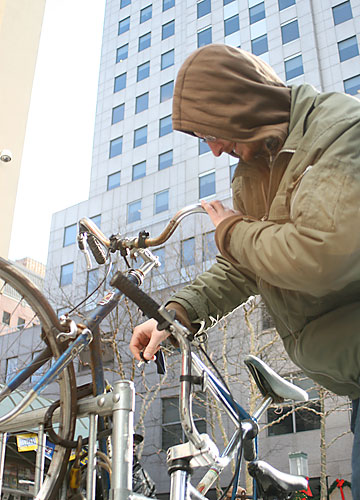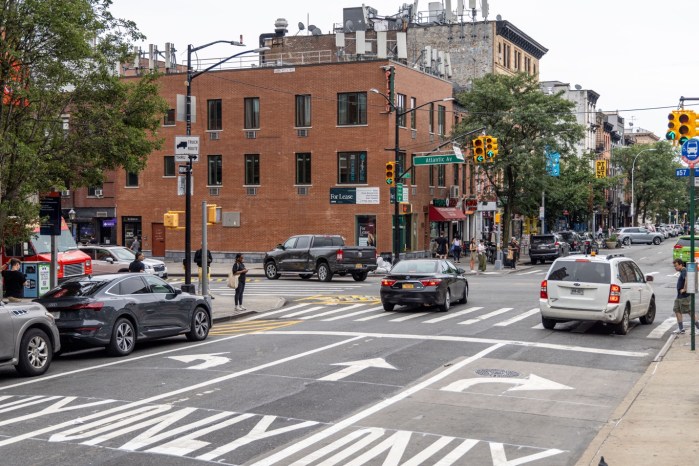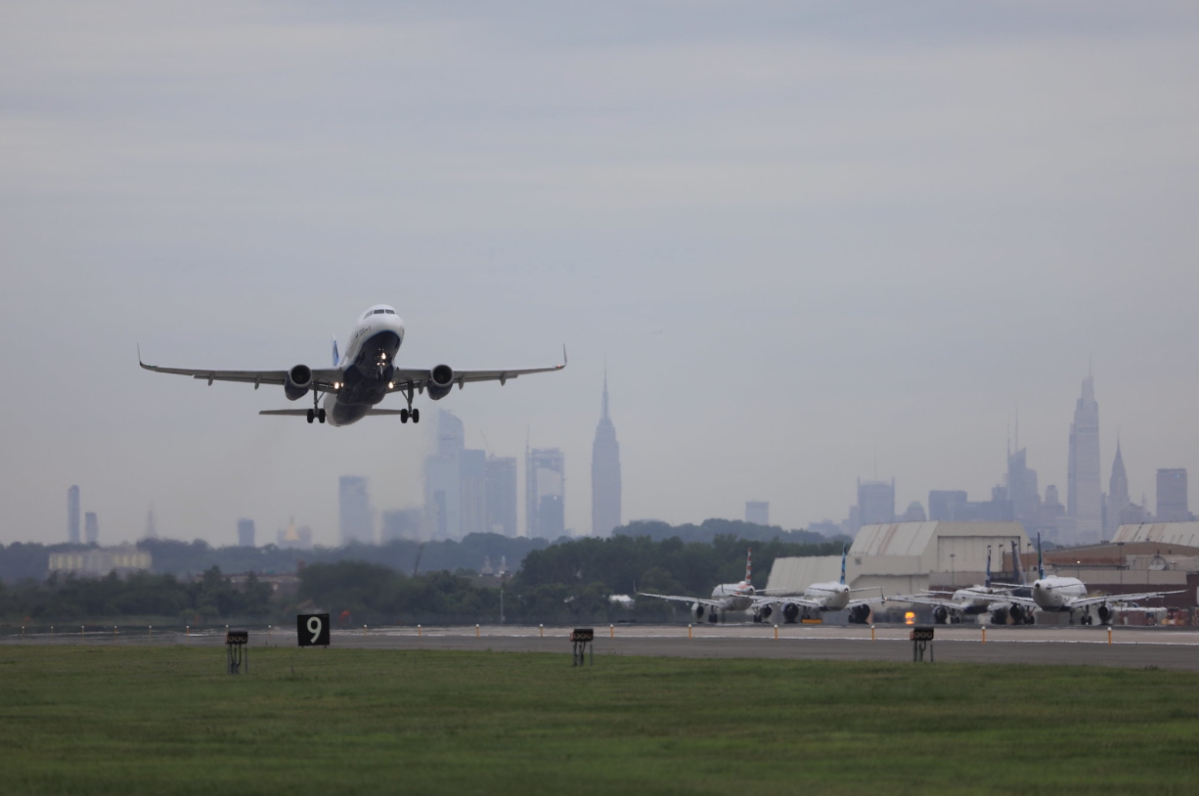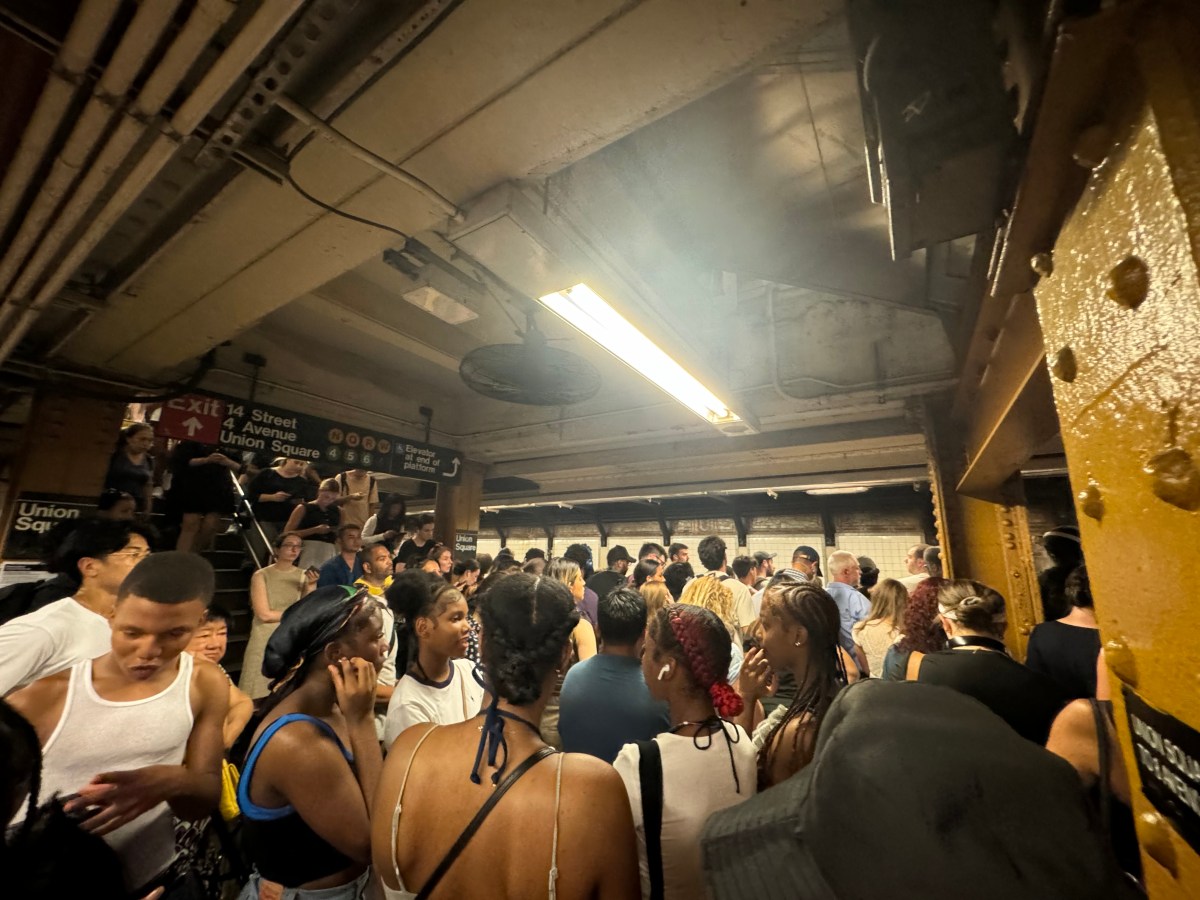The bike-in-building law went into effect last Friday — and now starts the hard part for Brooklyn cyclists.
Just because Local Law 52 — officially the “Bicycle Access to Office Buildings Law” — is now actually here doesn’t mean you can haul your Huffy up to your cubicle.
Indeed, you have to make the first move.
In all, there are many steps that need to be undertaken — all involving significant hurdles — before your office can become your bike lot (Transportation Alternatives has posted a handy guide on its Web site). Here’s a summary:
1. You or one of your co-workers needs to formally ask your employer if you can bring your bicycle into your workplace (to some bikers, this is the equivalent of having to ask your manager if you can go to the bathroom).
2. Your employer must agree. If your employer chooses not to accede to your wishes, the process ends there, leaving your bike out in the cold where birds and thieves can prey on it. There’s nothing in the law that requires your employer to comply.
“Convincing your employer of the benefits of having employees bike to work is up to you and your fellow cyclist co-workers,” said a Department of Transportation fact sheet on the matter.
That said, you may have a great relationship with your boss, but what ultimately matters more is your boss’s relationship with the building owner — and your boss may simply not want to aggravate the very person who sets the rent.
3. But if your employer actually wants to be bike-friendly, he or she must download a form on the Department of Transportation’s Web site to request that the building owner complete a “Bicycle Access Plan.” This request must be sent by certified mail, return receipt requested, by the way.
4. Within 30 days, the building management must implement that “Bicycle Access Plan.” (There’s a city form for that, too) that lays out a defined route to the freight elevator.
5. But that freight elevator need only be operating during regular business hours.
Of course, there are exceptions. The main one is that buildings without freight elevators are automatically out.
Additionally, your building owner doesn’t need to let you haul your bike upstairs if he or she provides “covered, sufficient, secure, off-street no-cost … bicycle parking on the premises or within three blocks or 750 feet, whichever is less.”
What does “secure” mean? “Entry and exit to the parking must be either locked, monitored or restricted from the general public” and there must be structures to which cyclists can lock their bikes.
Another exemption is allowed if the freight elevator itself has some “substantial safety risks directly related to its use for bicycle access.”
The good news? In both cases, the Department of Transportation will inspect the building to verify that the owner really is providing this parking and not just getting around the law.
The department will explain its ruling by certified mail, by the way.
All of this may sound onerous, but the city’s main bike advocacy groups were stoked that riders may soon be able to store their spokes.
“This law is a foot in the door — a door that has been closed for a generation,” said Wiley Norvell of Transportation Alternatives, which worked with Councilman David Yassky (D–Brooklyn Heights) and the Bloomberg administration to get the bill done.
“Each bike rider is a squeaky wheel on this issue. We have faith in them. They will put in the paperwork and do the work.”
Fellow bike advocate Benjamin Shepard of Time’s Up! agreed.
“There will be some initial problems. But let’s hammer out the kinks and make this a feasible option.”
Kinks?
There are more kinks here than at a “British Invasion” radio marathon. First off, where will the bikes go?
“They can’t be stored in any corridor, that’s illegal,” said Marolyn Davenport of the Real Estate Board of New York, which opposed the bill. “And they can’t block any exits.”
And the building owners don’t need to go the extra mile with the freight elevator, either.
“No employer will pay for overtime freight elevator use,” said Davenport.
Davenport added that the Real Estate Board’s internal surveys found little demand for bike-friendly buildings anyway.
“It’s just too difficult to bike to work,” she said.
So far, no major Brooklyn building owner has come forward with a pre-emptive “bike access plan,” though DUMBO titan David Walentas already provides secure, off-road bicycle storage areas in the ground floor of many of his buildings.
Such storage rooms are not fool-proof, some bikers said, as thieves can sneak in after hours and gersh workers’ wheels.























